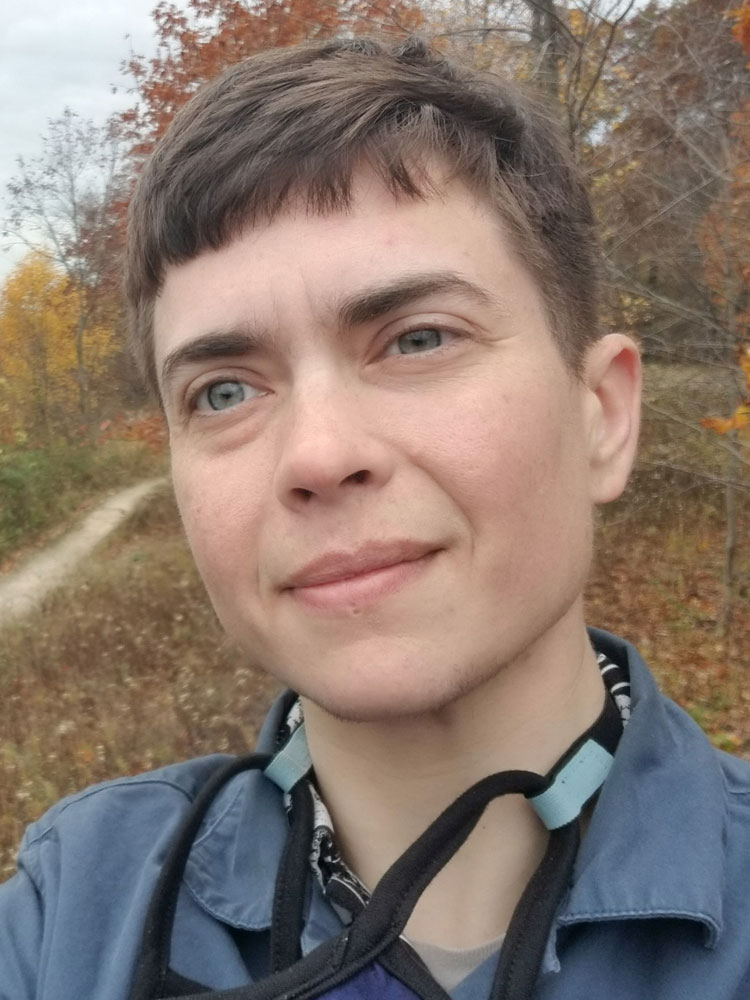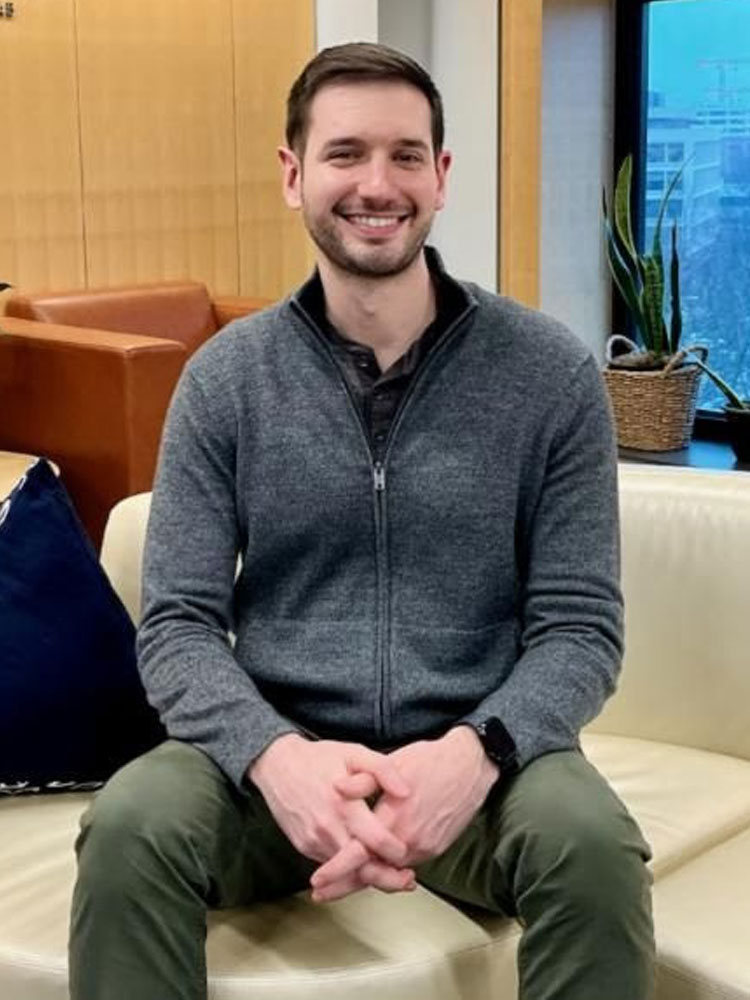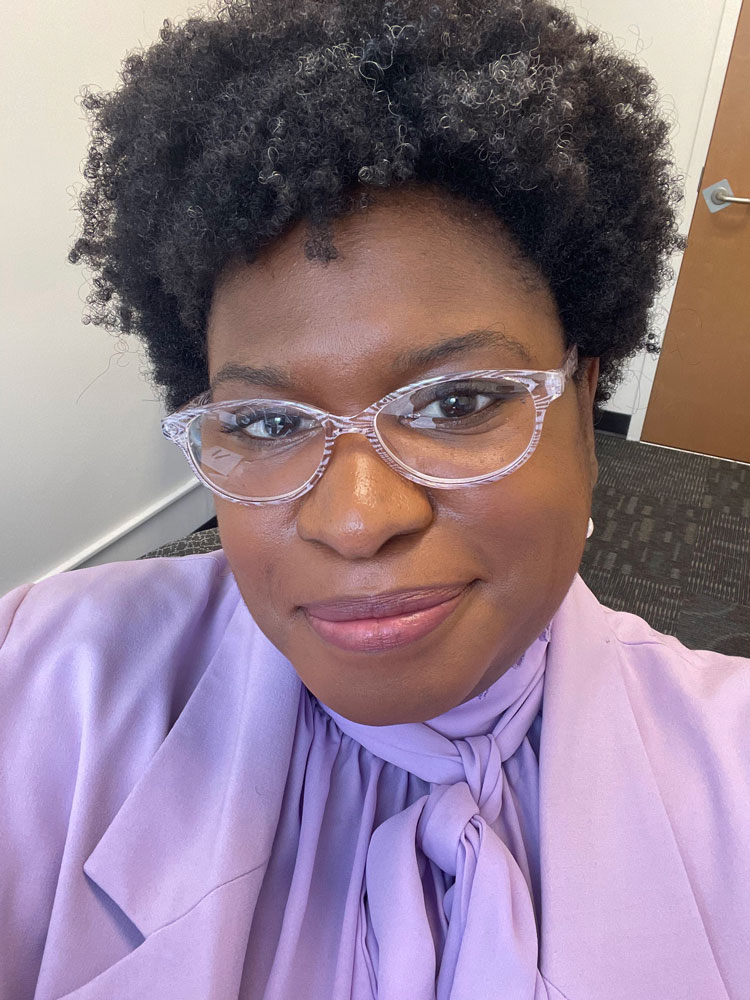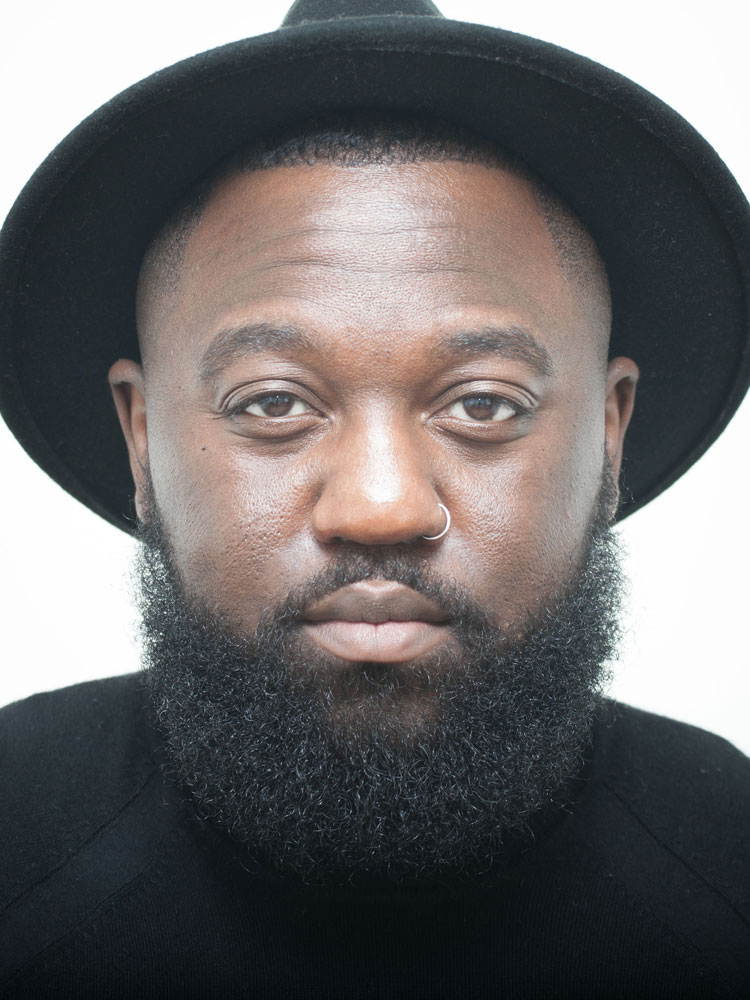Each year, National Coming Out Day on Oct. 11 serves as a powerful reminder of the strength, vulnerability and authenticity it takes to embrace one’s true self. First observed in 1988, the day serves as an opportunity for the LGBTQ+ community to celebrate their authentic selves and advocate for their rights.
To mark the occasion, The Daily spoke with four openly queer members of the Case Western Reserve community who reflected on their coming out experiences, and shared advice for those still on their journeys. While every coming out story is different, they all share a common theme: the pursuit of authenticity and the hope for a more inclusive future.
Whether you’re considering coming out or supporting someone else, the university’s LGBT Center can provide a safe environment for private conversations with staff, support groups and connections to helpful resources along the way.
Leon Bote (he/him/his)

Email manager, development and alumni communications
What is your coming out story?
Like in many cases, there are multiple chapters in a long timeline. It all began when I was a small child and first realized that I was being perceived and treated differently compared to my two older brothers—they were getting all of the toys, clothes and experiences I wanted. I remember crying when forced to wear itchy tights and dresses, and screaming that I hated my name and was not a girl. So, technically, that’s when I first came out.
During playtime, I would pretend to be characters such as Peter Pan, Aladdin and Simba, and I would also privately, vividly imagine my life as a boy. In fact, that’s where my name came from—I had named myself Leon in those scenes, and that repressed memory surfaced a few years ago when I read that name in a picture book I had created for an assignment in fifth grade.
It was not safe for me to be myself when I was young—when I was a preteen, I heard that conversion therapy was a possibility for people like me, and that scared me. I started to repress my identity around then, and I learned to be strategic about how I could go about being myself. That took an enormous toll on my health, to the point that I was severely disabled for a decade starting in my early 20s. Ultimately, my transition became necessary to save my life; I could not exist as an alive person today as anyone but Leon.
What has been the best part about coming out?
Besides being alive and able to maintain a fulfilling career and dreams for the future, the best part is being able to confidently introduce myself and not feel a horrible, deep cringe inside every time I write, say or hear my name. While I was still repressing, I tried changing my name for about a year to another, slightly less feminine name, and I was frustrated when that did not solve the problem. I decided I hated names in general. When asked for my name (I did not offer it otherwise), I always mumbled it, and I let people call me whatever they heard it as. And I avoided asking for and remembering others’ names because maybe then they would extend the same courtesy to me.
What was challenging about coming out?
The most challenging part is being a political talking point, and as a result, having to worry that I may lose access to a life-saving medication, let alone many of the rights I now enjoy.
What advice would you give someone who wants to come out but hasn’t yet?
If you can find a way to safely do so, living authentically is the best thing you can do for your health. In fact, I would give this advice to anyone—not just to those who are transgender, but to those who are concealing anything about themselves, such as neurodivergence, chronic health conditions, the effects of traumatic experiences, socioeconomic backgrounds, etc. There is clinical research to back it up!
Tyler Fond (he/him/his)

Assistant director, Cray Center for Venture Creation
What is your coming out story?
I started coming out at 18 yearsold when I moved away to college for my undergraduate degree. I was in a place in life where I had accepted it myself, and was independent, just in case there was a negative reaction from my family. I started by coming out to my new friends I was making in college. Coming out to someone I hadn’t known for that long felt easier than family or friends I knew since childhood, so I worked my way up to those.
Overall, I found that I went into it expecting the worst, and was usually pleasantly surprised. I did lose a couple friendships throughout the process, but the people that are still in my life all acknowledged they loved me, even if they were confused at the time. I remember being especially nervous about coming out to my best friend. I was afraid it would change the way he acted around me. When I finally came out to him, he said, “we can keep watching Survivor on Thursdays, right?” Then we both cracked up and that was it. It’s something we both joke about to this day, even though we don’t watch Survivor anymore. We stopped watching because it got boring, not because I’m gay … just FYI.
I always say I “started” coming out at 18 because it’s a process that never really ends, but feels less daunting every additional time you do it. To some people I’ve never talked to about it, I could be coming out right now!
What has been the best part about coming out?
The best part of coming out for me was removing the weight off my chest from no longer needing to keep a secret, and the confirmation of knowing those around me accept me for who I am. An added bonus is being able to be there for people who aren’t ready to come out just yet, but need someone to talk to that’s been there before.
What was challenging about coming out?
The most challenging part of coming out for me was evaluating which relationships are worth giving the effort to try to help them understand, and when it is time to walk away from those relationships. Not everyone is accepting, to varying degrees. There are certain situations when you need to realize that the relationship is causing more personal harm than good, and move on from it.
What advice would you give someone who wants to come out but hasn’t yet?
Put your safety first, and come out at your own pace. Come up with a plan about how you would like to come out. Who will you talk to first? What will you say? Is there a spot you feel comfortable doing it in? You don’t need to follow this super closely, but being prepared can put you at ease. You get more used to it the more you do it, so if there are certain people that you’re fairly sure will support you, try with them first. Do what feels right for you, when it feels right—it’s entirely your own decision.
Karmen M. Garrett (she/her/hers)

Associate director, Disability Resources
What is your coming out story?
My coming out is a classic love story. It is long, dramatic and has all the silliness of teenage love. I was 15 years old when I realized the loneliness I didn’t understand could be cured. When I was younger, people felt free to question my sexual orientation and expression as if it belonged to them. High school was rough, and I carry some of those scars today. The scars ache when I work with members of my LGBTQIA+ family who did not have the support I found. We have come a long way as a society, but we struggle to make every child feel worthy. I hope I will be remembered as someone who stepped into the gap. I am proud to be able to give back to my community by working, mentoring, mothering and simply existing. I am glad to still be here and I am grateful to identify as a Queer Femme. One day, I hope all coming out stories will just be love stories.
What has been the best part about coming out?
Being able to live authentically for all my adult life.
What was challenging about coming out?
Coming out means giving up your former self and who you thought you would be for the unknown. It is extremely exhilarating and can be disorienting. Also, it can be hard to manage other people’s reactions. Allies and folks who have already come out are important resources for getting support.
What advice would you give someone who wants to come out but hasn’t yet?
Remember that coming out is not just one event. You will come out many times in your life. Go at your own pace and keep your allies close.
Avery Ware (he/they)

Director, LGBT Center
What is your coming out story?
Whenever I’m asked this question, I always go back and forth about which coming out story I’ll tell. That’s the thing about “coming out,” you never come out just once. But, for my CWRU community, I’ll tell the fun story.
Picture it, senior year of undergrad, it was a fellow resident assistant and friend’s birthday. Our staff of 12 was pretty close, so we all planned to go to the Interbelt, one of the oldest gay clubs in the country, to celebrate. My friend was very openly gay, and I’d always admired his confidence and uninhibited spirit. The day came and all the straight folks on staff decided not to go out for the celebration—it was a Monday night. So, it ended up being three openly queer people and me—the lone “straight” of the group. We made it to the club and a few Angry Orchards later, I hit it off with a guy and we danced all night. On the way back to our residence hall, one of my friends turns to me and says, “so … you’re … gay?” And I proudly replied, “hell yeah!”
What has been the best part about coming out?
Coming out was a release; the ultimate exhale. I was finally able to stop lying. I was no longer concerned if I walked with a switch or if I held my hands on my hips. I met myself when I came out. Not who my friends, family or the church wanted me to be. I was me. Coming out gave me the boldness to be me!
What was challenging about coming out?
The annoying part of coming out was having to come out. The fact that society has marginalized and oppressed queer people so comprehensively that we have to keep a part of our identity a secret is absurdly annoying to me. We should be able to exist, love, work and be without the possibility of our safety, relationships and/or livelihoods compromised. I long for a liberated society that eliminates the anxiety of coming out.
What advice would you give someone who wants to come out but hasn’t yet?
I always have three talking points when asked this question:
- You are worthy of living a life of authenticity!
- Do it when you’re ready and safe.
The anxiety of being judged and/or rejected is very real, but people will surprise you! The people in your life are probably a lot more complex than you think. If you love them, give them the pleasure of knowing you.

